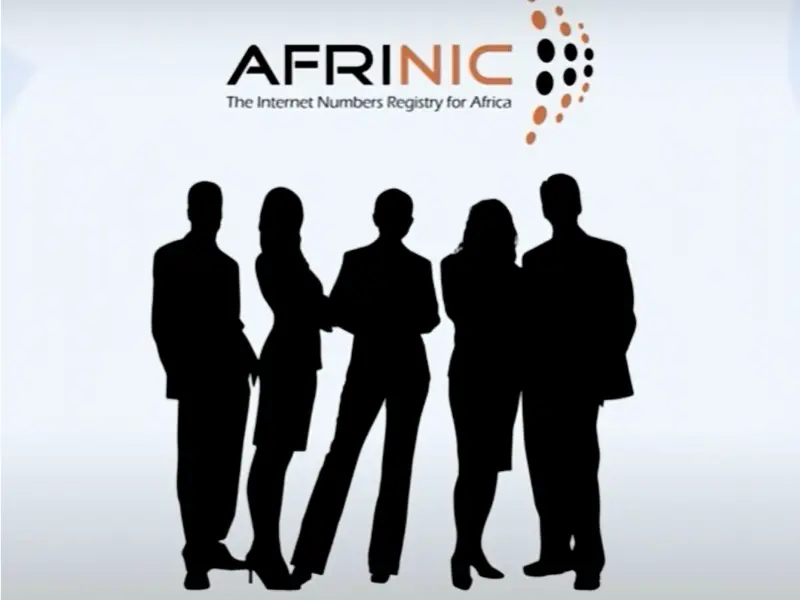- A single proxy vote has triggered the complete suspension of the AFRINIC Board elections, prompting a criminal investigation and drawing global scrutiny.
- ICANN has issued two letters urging action, warning of a potential compliance review and even considering the reassignment of Africa’s IP allocation authority.
- Hundreds of legitimate ballots have been invalidated, while voices from smaller ISPs remain conspicuously absent—deepening an already escalating governance trust crisis.
The African Network Information Centre (AFRINIC) has once again descended into controversy after its 2025 board election was abruptly halted, then annulled, amid allegations of vote tampering, disputed powers of attorney (PoAs), and procedural misconduct. The incident has triggered a criminal complaint, institutional backlash, and threats of international intervention, raising urgent questions about who may face justice.
Also read: AFRINIC staff violated obligations during 2025 election
A vote that never counted
The election, held on 23 June 2025 after years of governance paralysis, was meant to restore AFRINIC’s legitimacy. Hundreds of members participated via in-person and electronic voting, with many appointing proxies through PoAs. But just minutes before polls closed, AFRINIC’s Nomination Committee (NomCom), led by Simon Davenport KC, abruptly suspended the vote. The reason: one proxy appeared unauthorised.
Also read: AFRINIC election crisis triggered by one proxy: The phantom vote that spiraled out of control
According to internal staff reports, the disputed PoA—since dubbed the “phantom proxy”—was cast without the consent of the resource holder. The incident was an isolated one, yet election staff suddenly cast doubt over hundreds of proxy votes, particularly those submitted by Number Resource Limited (NRL), a proxy agent for dozens of small African internet providers. NRL later revealed it had exercised only 20% of its ballots before the vote was frozen, effectively disenfranchising its members.
ISPA files criminal complaint
On the same day, the Internet Service Providers’ Association of South Africa (ISPA) filed a criminal complaint with Mauritian authorities, with unverified claims of “mysteriously missing” proxies from the record. No evidence has yet been shown.
Phone calls to verify the suspicious votes followed, breaking the confidentiality and non-disclosure terms of AFRINIC’s own bylaws.
Many are now questioning the conduct of the election officials, especially without evidence to back up their claims yet produced.
Receiver annuls vote, seeks court extension
On 26 June, court-appointed receiver Gowtamsingh Dabee formally annulled the election, citing “expressions of concern regarding potential irregularities.” He pledged to seek permission from the Mauritius Supreme Court to organise a new vote under stricter oversight. Four days later, on 30 June, the court granted an exceptional extension. AFRINIC now has until 30 September 2025 to hold new elections and reconstitute its board.
ICANN raises pressure
The Internet Corporation for Assigned Names and Numbers (ICANN), which oversees regional internet registries, has sharply criticised AFRINIC’s handling of the election. In two separate letters, ICANN warned that a compliance review may be warranted. It submitted 13 urgent questions to AFRINIC’s receiver about proxy practices, nominee committee appointments, and the involvement of parties engaged in ongoing litigation. Though Mauritius’ Supreme Court later confirmed that Cloud Innovation’s shareholder status resulted from an administrative error, ICANN stated that the “integrity of the overall election process” remained in doubt.
Again, stakeholders are asking : where is the evidence?
What’s next — and who’s accountable?
Stakeholders are also questioning whether halting the entire vote based on a single PoA dispute was justified, or whether it masked deeper political agendas.
AFRINIC members and observers continue to demand transparency, with speculation that the incident may have enabled undue influence over the election’s outcome. Some foreign delegates linked to proxies reportedly fled Mauritius after the vote was suspended. With AFRINIC under receivership since 2022 and trust hanging by a thread, the upcoming September deadline could be the last chance for the organisation to restore credibility. Should it fail, ICANN has suggested that another RIR could temporarily take over African IP allocation—a move without precedent in global internet governance.

